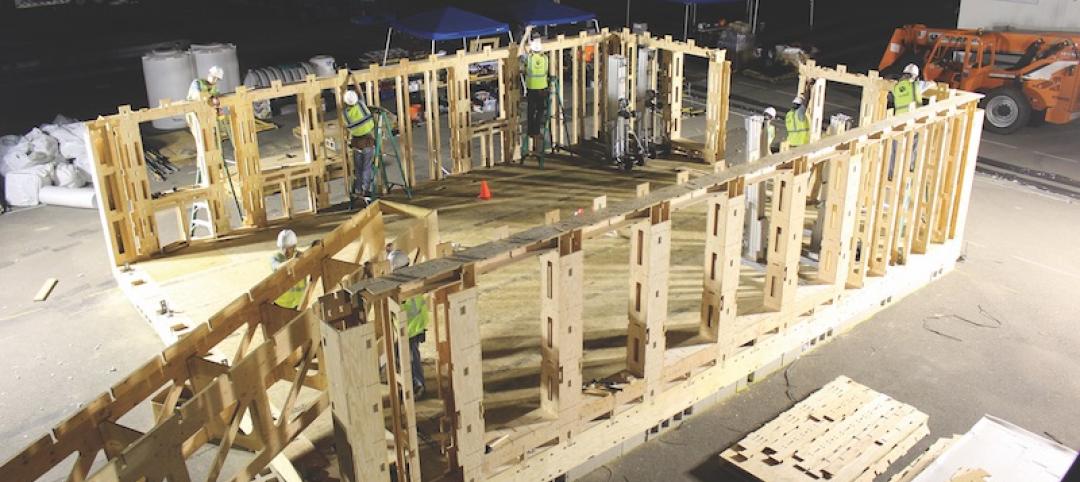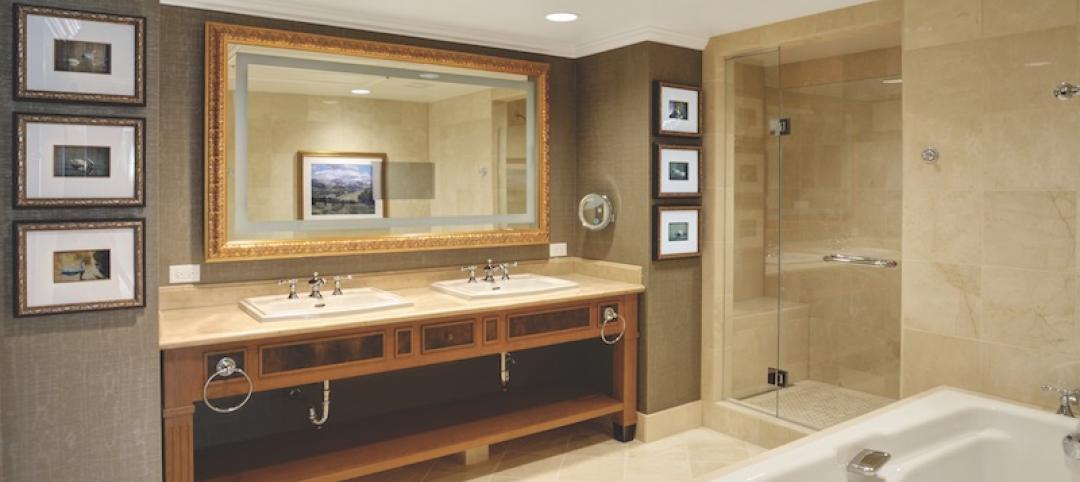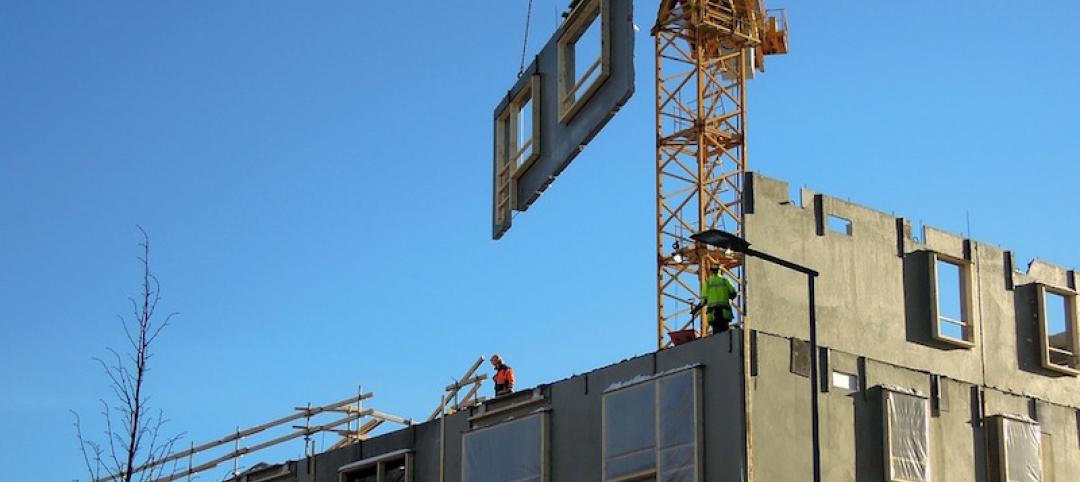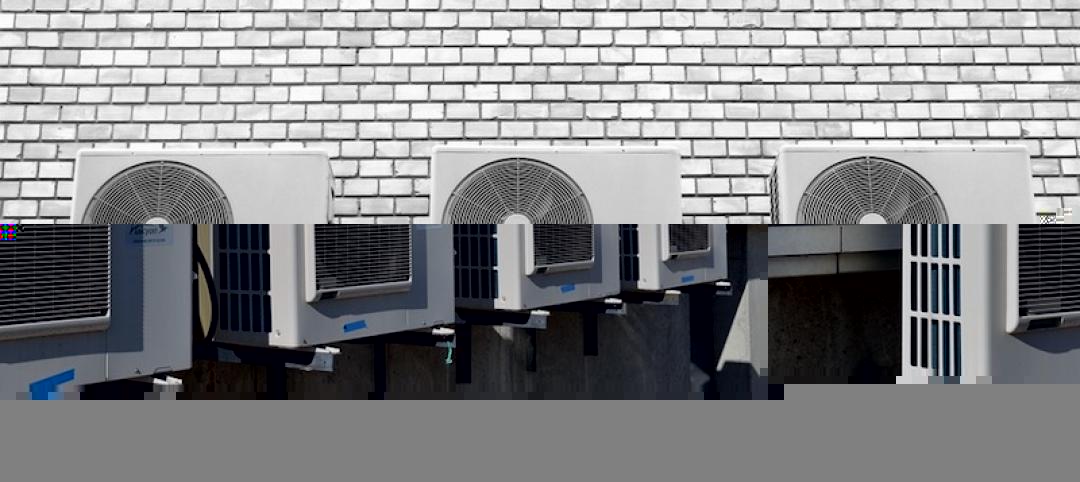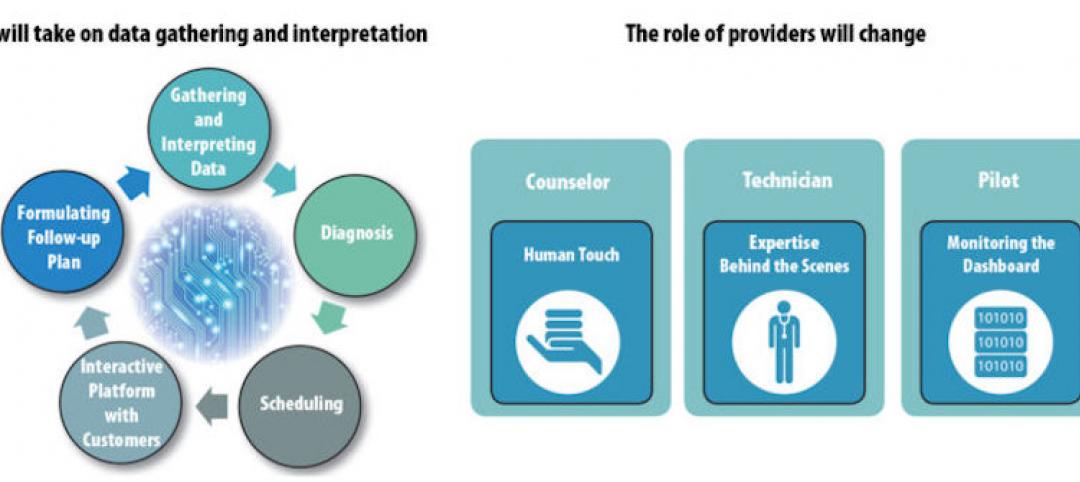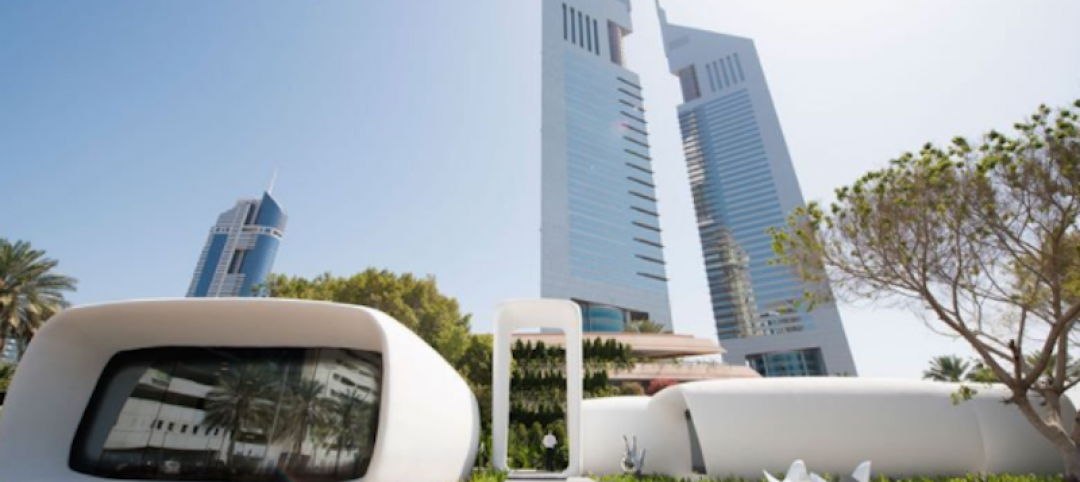A 400-acre site on the outskirts of Denver will be home to a mixed-use neighborhood heralded as one of the most innovative neighborhoods in development in the United States. Peña Station Next will act as a test lab for a multitude of new technology including transparent TVs, advancements in smart kitchen technology, and an intelligent bus stop with self-driving buses.
Panasonic is partnering with the city of Denver on the project and is providing the technology that will be used in the neighborhood.
The transparent television, for example, was shown off by Panasonic at CES 2017 and, essentially, transforms a clear window or an opaque surface into a TV screen, the Denver Post reports. Panasonic showed off working models of the TV technology that included the door of a sake-wine cellar refrigerator, a tabletop, and windows.
Many of the advancements Panasonic is looking to make to already intelligent kitchens are geared toward automating the process of cooking a meal as much as possible. Selecting a recipe on the sake fridge door will automatically set up the necessary appliances, such as preheating the oven to the desired temperature. Kitchen counters also double as induction stove tops with built in sensors that adjust cooking temperatures so as not to burn the food.
The smart bus stop is one of the first pieces of technology that will actually be installed at Peña Station Next. The stop is integrated with two LCD displays showing information such as bus schedules and how far away the next bus is. The stop will be powered by solar energy. The same self-driving buses that are already in use in Helsinki will also be used in the Peña Station Next development.
The neighborhood has already been equipped with 53 intelligent LED streetlights and a parking lot covered with solar panels. Blanket WiFi is expected by spring and the smart bus stop should be in place by summer. The autonomous shuttles are expected to arrive at some point in February.
Related Stories
Great Solutions | May 5, 2017
No nails necessary: Framing system comes together with steel zip ties and screws
Clemson University’s School of Architecture develops a patent-pending construction method that is gaining attention for its potential use in rapid, low-tech sustainable housing.
Building Technology | May 5, 2017
Tips for designing and building with bathroom pods
Advancements in building technology and ongoing concerns about labor shortages make prefabrication options such as bathrooms pods primed for an awakening.
Building Technology | Apr 21, 2017
AIA selects 2016 Upjohn Research Initiative Projects
Grants awarded to initiatives that study various aspects of design within the built environment.
Building Technology | Mar 9, 2017
Prefabrication's predicament: It's much harder than it looks
Many of the nation’s largest contractors, including Gilbane, Mortensen, Skanska, and Turner, have been utilizing prefab techniques on select projects for a decade or more.
Great Solutions | Mar 8, 2017
Pop-out balcony is a breath of fresh air for stuffy hotel rooms and apartments
In less than one minute, Bloomframe transforms from an insulated picture window to an open balcony.
Building Materials | Feb 15, 2017
New metamaterial cools roofs without any energy consumption
The material is barely thicker than aluminum foil and can be economically manufactured for large-scale residential and commercial applications.
Virtual Reality | Feb 1, 2017
Tour ancient buildings and cities as they were when new with Lithodomos VR
An Australian archeological startup is bringing the ancient world to a VR headset near you.
Building Technology | Jan 30, 2017
Machine learning could help buildings notify occupants about critical systems failures before they happen
Data from sensors built into HVAC units paired with a machine learning algorithm predicted 76 out of 124 real faults for an Italian hospital.
Building Technology | Jan 27, 2017
The driverless clinic: How buildings powered by AI can help promote wellness and enhance human connections
In the future, we envision that the smart technology in our phones will be embedded in the items we wear and the objects we use.
Building Technology | Jan 24, 2017
A U.S. startup is working with Dubai to advance 3D printing for construction
Cazza Construction Technologies is building a crane that it claims can layer more than 2,000 sf of concrete per day.


